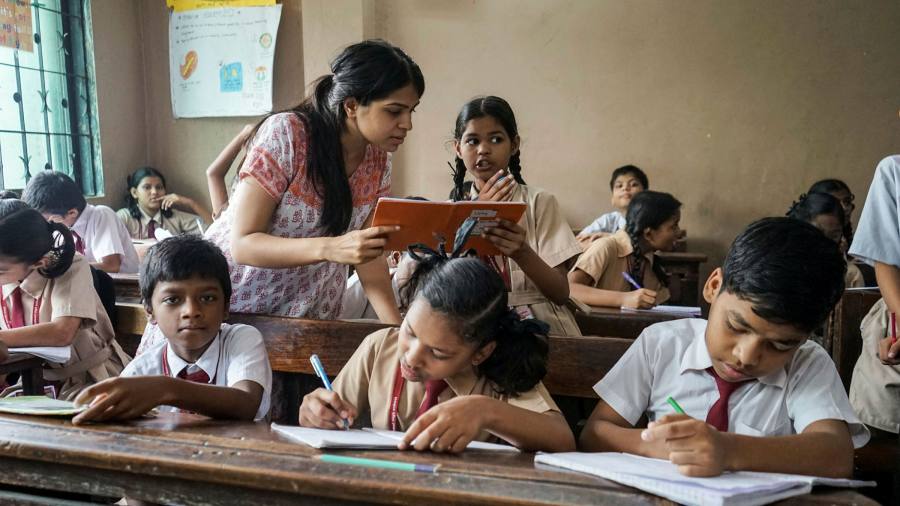
Can we make investing in education add up?
Search the world wide web for signals of development in direction of the UN worldwide intention of good quality schooling for all by 2030 and you promptly make two gloomy discoveries: the sluggish developments on their own and the restrictions of the equipment to observe them.
The data are stark: hundreds of hundreds of thousands of kids all-around the planet even now do not go to college or fall out early if they do, and numerous are unsuccessful to get basic literacy and numeracy abilities, even if they attend courses. That leaves the coming generations — and their communities and countries — not able to achieve their prospective, impeding human and economic development.
Just as regarding as the shocking quantities is the actuality that, driving the facade of slick on the net data dashboards and visualisations, the hyperlinks are typically broken and the information and facts offered is inconsistent and out-of-date. Nations around the world report in a number of strategies, and several have not manufactured helpful domestic, enable by yourself internationally equivalent, snapshots of their functionality for decades.
That displays a vary of halfhearted jobs to monitor and increase educational attainment. Many absence aim and momentum. As Kevin Watkins, the former head of Conserve the Small children, argues in this report, it factors to a absence of meaningful steps, accountability or ambition among the policymakers and funders to ensure better and urgently essential enhancement takes location.
Some investigation even suggests educational attainment has been regressing in reduced-profits countries in the latest years. That is inspite of the substantial sums put in and a steady growth in the selection of academics and colleges supposed to elevate children’s probabilities. Amount has displaced top quality.
Measurement can be dangerous: also slender a concentrate risks being reductive and prospects to the gaming of devices, distraction from additional critical priorities that are difficult to measure and a diversion of sources from exactly where they are most required. But as Lant Pritchett, a enhancement economist, details out, what doesn’t get measured absolutely does not get done.
As we explain in Senegal, South Africa and India, tailored “foundational learning” to nurture essential literacy and maths is an critical setting up block that has gained inadequate notice. Our situation experiments in Lebanon and Mexico illustrate how coronavirus has compounded current difficulties such as migration, poverty and overcrowding, triggering fresh setbacks and worries above growing learning reduction all over the environment.
Lecture rooms in several countries have been closed for months and accessibility to online examine has been uneven. Several governments — battling to prioritise new needs on leading of servicing personal debt — have however to attain the 2015 Incheon Declaration targets of 15-20 per cent of public shelling out on schooling. Donor contributions have dropped as economies gradual and politicians focus on domestic wants.
Educationalists typically position with envy to the wellbeing sector, which has managed significantly far more successfully in the latest several years to mobilise massive volumes of funding and bring about major improvements in lifestyle expectancy and a reduction in mortality and morbidity. But there are at least two basic discrepancies.
Initially, sick health and fitness is simpler to diagnose and more noticeable, and the therapies presented in response are frequently very effective and quick, delivering tangible proof of profit, together with for staff and voters. That will make investments a lot more powerful for politicians to aid. Instruction, by distinction, is additional opaque: the will cause of bad attainment in small children are less distinct, the remedies additional intricate and protracted, and the effects are sluggish to manifest.
Next, well being is a mixed economic climate that brings together general public, private and non-income funding, and provision and instruments these kinds of as ground breaking medications, vaccines and diagnostics. The position of the private sector in education and learning is far additional ambivalent: “edtech” is generally overhyped and inappropriate, especially in low-income configurations providers working outdoors the condition procedure frequently maximize inequality and their overall performance is blended at greatest, as we report from Liberia.
As the Ugandan former union leader Juliet Wajega claims, greater educating recruitment and instruction is necessary imposing unrealistic requires or shifting accountability unfairly can easily backfire.
Yet, argues the Nigerian businessman Aliko Dangote, business enterprise can participate in a function, at minimum in functioning with policymakers to encourage a lot more financial commitment and detect superior in which to devote to nurture the abilities and properties desired for the coming generations.
With delegates collecting this 7 days for the IMF-Environment Lender annual meeting, schooling ministers want to discover the right language to influence their finance counterparts to make commitments — and adhere to by. As Kenya’s President Uhuru Kenyatta argues, advancements will need management from the extremely prime of governments.
